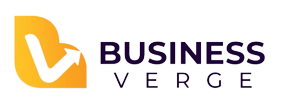If 2023 should ever be reduced to a single buzzword, it’ll be just two letters; AI. Yet, ask any tech expert and they’ll reassure you AI wasn’t invented last November when ChatGPT burst on the scene, and seamlessly took over the entire internet. For decades before that, we’ve been interacting with AI in social media algorithms (the Tiktok For You page that seems to have everything), Spotify playlists, in smash devices (Alexa, Siri). And definitely in healthcare.
But there’s no doubt we’re currently living through an AI revolution. AI has never been more visible in our daily lives and works than it is today. And Africa isn’t left out of this. There’s a transformation unfolding, albeit a little less rapid on this side of the Atlantic; heralded by the gentle hum of technology and the promise of a future that’s much faster, smarter, easier, and definitely, healthier.
This transformation, once the stuff of science fiction pages, is tangible, real, and pulsating today through the very veins of African healthcare. Artificial Intelligence (AI) stands at the helm of this change as a force so potent that it’s reshaping how healthcare is accessed, delivered, and perceived across the continent.
Close your eyes for a moment and imagine a scenario where diseases are diagnosed with a precision that was once unfathomable, where treatment plans are not just standardized but personalized to the minutest detail of a patient’s needs. This isn’t a utopian dream; this is the essence of AI in healthcare, a beacon illuminating a path toward improved healthcare access, reduced costs, and enhanced patient outcomes.
Precision Diagnosis: A New Dawn in Healthcare
In bustling hospitals of Nairobi and the quiet clinics in rural Nigeria, a silent ally is aiding healthcare professionals: AI algorithms. These intricate lines of code, fed by vast datasets, possess the ability to diagnose diseases with a precision that defies the norms of traditional medicine.
Patterns usually hidden within complex medical data are now unraveled in seconds, enabling doctors to focus less on deciphering cryptic data and more on providing personalized, effective care.
Efficiency: Where Time Meets Healing
Africa is a continent where resources, where they do exist, are often thinly stretched. On account of this, AI emerges as a lifeline. It doesn’t just automate routine tasks like data entry and appointment scheduling; it liberates healthcare professionals to delve into the heart of their profession – providing intricate medical care.
With AI handling the mundane, doctors and nurses invest more energy in critical cases, fundamentally enhancing the efficiency of healthcare delivery.
Empowered Patient Engagement
AI doesn’t confine itself within the walls of medical facilities; it extends into the daily lives of patients. Imagine receiving personalized health recommendations, timely reminders, and vital health alerts directly to your fingertips. This isn’t science fiction; it’s the reality AI is crafting. For a diabetic patient in Accra or an expectant mother in Dar es Salaam, these AI-driven nudges bridge the gap between medical consultations, ensuring timely interventions and proactive healthcare management.
Democratizing Healthcare: Cost-Effective Solutions
Despite its sophistication, AI isn’t an elitist luxury. It’s a democratic force, promising cost-effective solutions for all. By automating processes, minimizing hospital readmissions, and avoiding unnecessary medical procedures, AI optimizes healthcare costs.
In a continent where accessible and affordable healthcare is a pressing concern, these cost reductions translate into tangible improvements, making healthcare not just a necessity but a right for everyone.
Revolutionizing Access to Care
AI transcends geographical boundaries, weaving a web of connectivity that bridges urban medical centers and remote villages. Telemedicine services, remote patient monitoring, and digital health solutions are revolutionizing healthcare access. For a villager in a distant corner of Ghana, a virtual consultation with a specialist isn’t a distant dream; it’s becoming a reassuring reality. AI brings medical expertise to doorsteps, transforming lives and fostering a healthier society.
Challenges: Navigating the Uncharted Waters
Yet, for all its promises, the integration of AI into African healthcare isn’t a seamless journey. Infrastructure limitations, data access challenges, and valid concerns about privacy and security cast shadows on this path of progress. However, the African spirit, resilient and innovative, finds solutions even in the face of adversity.
The Moral Crossroads of AI: The Ethical Challenges in Healthcare
AI, like all the best technology, is akin to the metaphorical Pandora’s box, containing both the promise of progress and the perils of ethical quandaries.
Privacy and security, biases and discrimination, transparency, professional impact, and equitable access to care are the ethical battlegrounds where AI’s impact is deeply felt.
At the heart of the matter is the precarious balance between AI’s hunger for sensitive patient data and the imperative to safeguard privacy and security. Policies and regulations must swiftly evolve to cocoon patient data, ensuring it remains sacrosanct even in AI’s capable digital hands.
Also, biases lurk in the very algorithms meant to heal. When AI is trained on non-representative data, discrimination against specific patient groups can inadvertently thrive, casting a shadow on the technology’s impartiality. Establishing unyielding standards for transparency and accountability becomes our moral obligation, ensuring AI’s decisions are as just as they are precise.
The AI revolution, while transformative, casts a daunting shadow on healthcare professionals. Automation, while promising efficiency, could shroud the sector in job losses. Therefore, nurturing programs and policies that support healthcare professionals amid this technological tidal wave is essential.
Yet, amidst these ethical quandaries, an even more haunting prospect emerges – the digital divide. AI, with all its potential, might inadvertently leave behind the very people it aims to serve. Rural and underserved areas risk being excluded from the healthcare metamorphosis. Thus, the mission of every professional in this field is simple: AI’s marvels must be accessible to every patient, bridging gaps of location and social standing.
A Glimpse into Tomorrow
The journey toward integrating AI into African healthcare is a complex yet transformative one. Challenges persist, but the determination of nations and the resilience of their people illuminate the path forward.
As ethical frameworks strengthen, infrastructural limitations dissolve, and collaborative initiatives flourish, AI stands poised, not just as a technological marvel but as a beacon of hope. The future of African healthcare isn’t merely shaped by technological advancements; it’s sculpted by the ethical commitment to a healthier, more equitable tomorrow. AI isn’t just a tool; it’s a transformative force, ensuring that healthcare isn’t just a service but a right, accessible to all.










Leave feedback about this